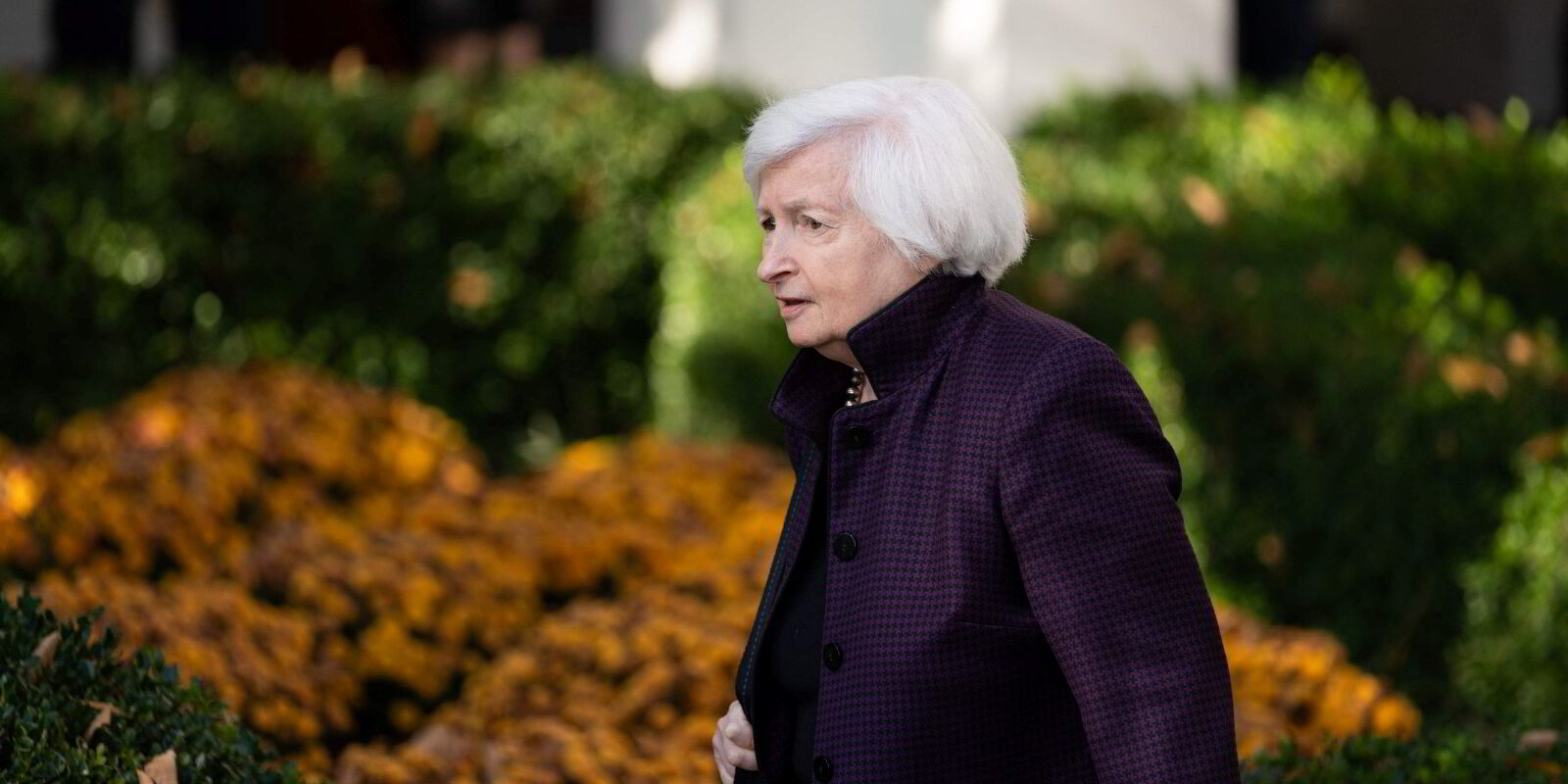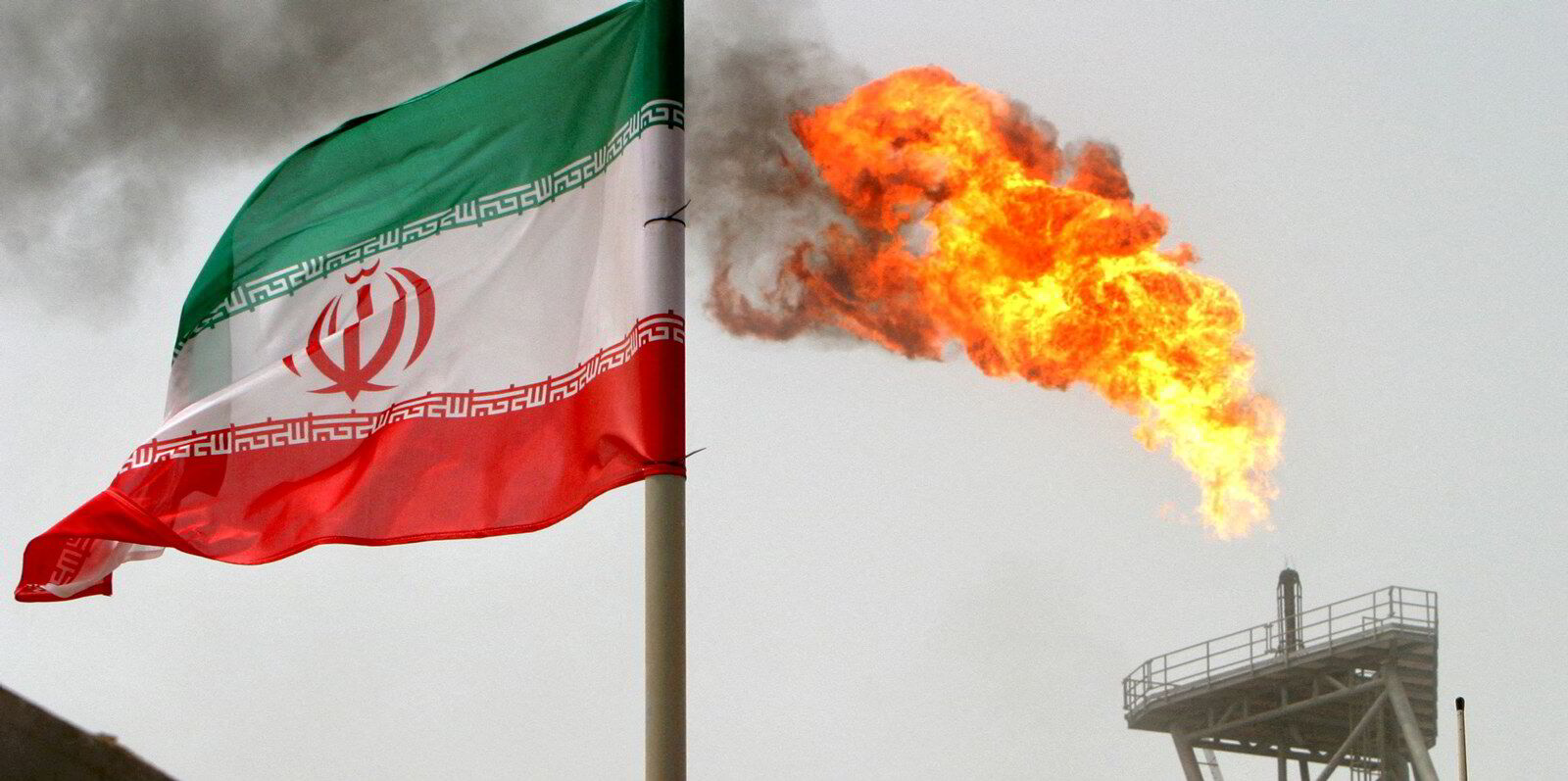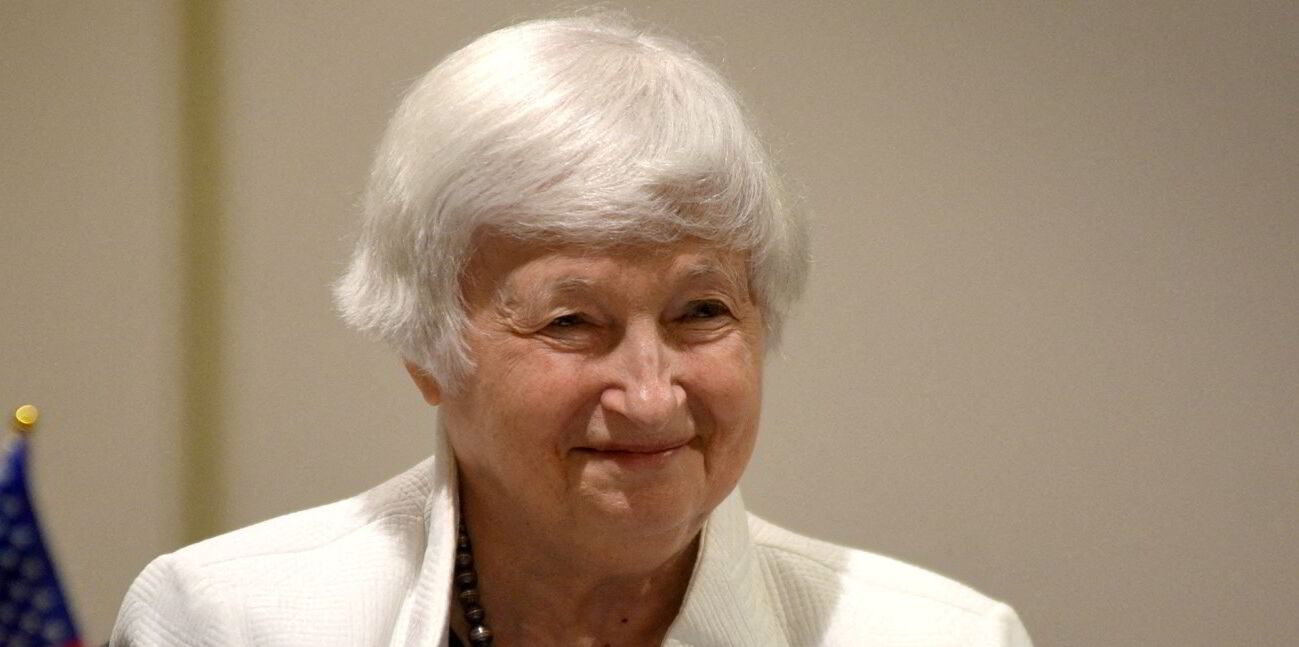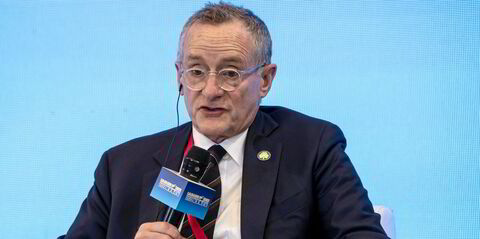Washington rolled out sanctions against a fleet of tankers and their affiliated companies in a bid to clamp down on a Syrian conglomerate accused of generating hundreds of millions of dollars for the Houthis and Iran’s Qods Force.
The new blacklistings targeted a total of 26 companies, individuals and vessels associated with Al-Qatirji Co, an outfit that had already been on the sanctions list of the US Treasury Department’s Office of Foreign Assets Control.
The latest move is part of ramped-up sanctions efforts by the administration of US President Joe Biden to go after Qods Force, an elite foreign operations unit of the Islamic Revolutionary Guard Corps, and the business networks it uses to generate funds from oil sales to support proxies in Yemen, Lebanon and elsewhere.
Al-Qatirji is accused of not only funding the Qods Force, but also the Yemen-based Houthis, by selling Iranian oil to China.
Bradley Smith, the acting Treasury undersecretary for terrorism and financial intelligence, said Iran is increasingly relying on business partners like Al-Qatirji to fund proxies in the Middle East.
“Treasury will continue to take all available measures to restrict the Iranian regime’s ability to profit from the illicit schemes that enable its dangerous regional agenda,” he said in a statement.
Treasury said Al-Qatirji has become a key financial channel for Qods Force, using money laundering in places like Istanbul and Beirut and funneling the money to the Houthis.
The new sanctions also target the new leader of the company.
Former leader Muhammad Al-Qatirji, whose name is also spelled Al-Qaterji and who was known as “the Whale”, was killed in an Israeli air strike in Damascus in Syria.
Hussam Al-Qatirji has succeeded him, Treasury said as it accused executives of the company meeting directly with Qods Force and Sa’id al-Jamal, an Iran-based Yemeni who is accused of being a major financial facilitators of the Houthis.
Other company officials targeted in the latest sanctions are Muhammad Agha Ahmed Rashdi Qatirji, who allegedly works on Al-Qatirji Co’s oil portfolio, and the late leader’s son ‘Abbas Katerji.
OFAC added 12 ships controlled by Al-Qatirji to its blacklist.
| Name | Ship type | DWT | Build date | IMO number |
| Baron | MR chemical tanker | 46,200 | 1995 | 9080493 |
| Romina | Suezmax crude tanker | 148,000 | 1996 | 9114608 |
| Chloe | Suezmax crude tanker | 160,000 | 1999 | 9173745 |
| Joel | Aframax crude tanker | 105,000 | 2000 | 9198094 |
| Lotus | Suezmax crude tanker | 160,000 | 2000 | 9203784 |
| Rex 1 | Suezmax crude tanker | 165,000 | 2001 | 9219056 |
| Ramona I | Suezmax crude tanker | 164,000 | 2002 | 9233222 |
| Lelia | Aframax crude tanker | 115,000 | 2003 | 9258870 |
| Eline | VLCC | 307,000 | 2005 | 9292486 |
| Celine | LR2 product tanker | 117,000 | 2006 | 9305609 |
| Mia | Suezmax crude tanker | 150,000 | 1993 | 9018464 |
| Lia | Suezmax crude tanker | 146,000 | 1996 | 9041057 |
Although Al-Qatirji is the beneficial owner of the Lelia, Joel, Eline and Celine, Treasury said the Syrian company has proposed transferring the tankers to Qods Force to settle debts that number in the tens of millions of dollars.
The department also blacklisted India’s Salina Ship Management for operating three of the tankers, and Panama-registered Bluespectrum Shipping for owning and managing the Joel.
Other entities added to the sanctions list in connection with the Al-Qatirji fleet include Lebanon’s Softwater Navigation Holding and Pearl Shipping & Trading, Panama-registered Elias Shipping & Trading Group, Marshall Islands-registered Nativa Management, Iran-based Amitis Jazireh Kish Ship Management and Seychelles-registered Veline Shiptrade.
US officials also sanctioned the 151,000-dwt suezmax tanker Star 5 (built 1998), which they said has been used by Al-Qatirji in oil shipments coordinated by Al-Qatirji. Its owner, Iran-based Moshtaq Tejarat Sanat, was also targeted in the latest blacklistings.
Contact information for the companies mentioned in this story could not be immediately found.





